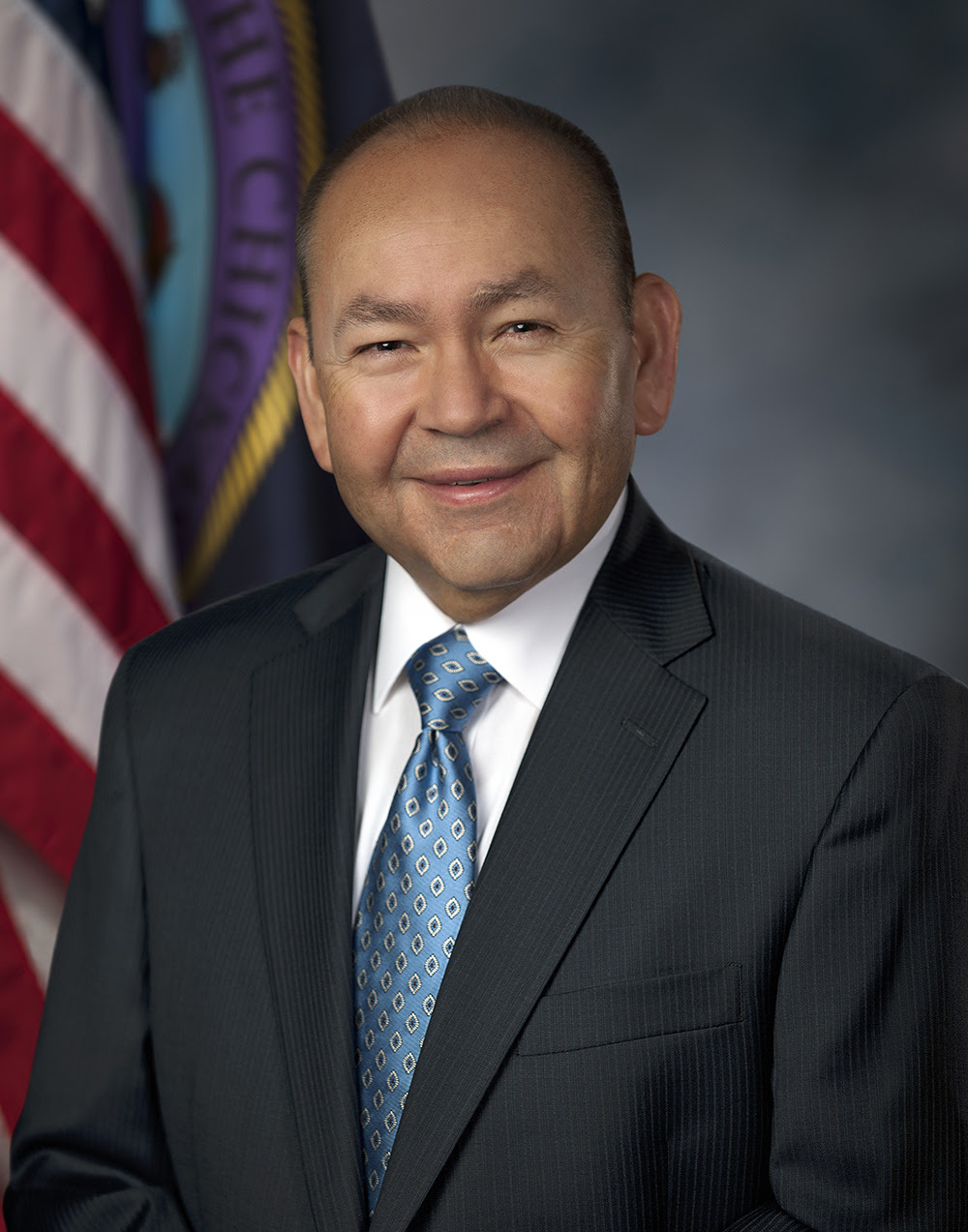A weekly newspaper serving the residents of Nichols Hills and the Village named Chickasaw Nation Governor Bill Anoatubby “OKCityan of the Year” in January.

OKC Friday made the choice based upon praise from top leaders located in the state’s capital city who endorsed Governor Anoatubby’s selection although he resides in Ada.
“I would be hard-pressed to name five people who have done more for OKC over the last 15 years,” Oklahoma City Mayor David Holt said. “This is perhaps all the more remarkable considering the fact that the Chickasaw Nation’s jurisdiction is beyond our city limits.
“But Governor Anoatubby saw the vision a long time ago that Oklahoma City can be a national capital for Native and Indigenous people.” Holt called the honor “well-deserved,” the newspaper reported.
Governor Anoatubby was first elected in 1987, which started the 32nd administration of Chickasaw Governors.
Holt said as Governor Anoatubby realized establishing Oklahoma City as a national capital for First Americans begins with the First Americans Museum and OKANA, a resort and indoor water park which is under construction, he made those two projects possible.
“His leadership has also supported our city’s broader renaissance,” Holt said. “Governor Anoatubby and the Chickasaw Nation have supported our ballpark, our zoo, Remington Park and countless community endeavors.
“He is an inspiring example of humble servant leadership. He works with people, he knows how to get things done, he’s pragmatic, he’s results-oriented.
“He’s generous and kind. He’s simply one of the most effective leaders our state has ever seen. His legacy as an example to other leaders will be as strong as his accomplishments,” Holt told the newspaper in honoring Governor Anoatubby.
Oklahoma City – and the state’s charitable sector – holds the highest regard for Governor Anoatubby said Oklahoma Center for Nonprofits President and CEO Marnie Taylor.
“For more than a decade, he has supported countless causes – as an individual and as the Governor of the a Chickasaw Nation – with a quiet modesty coupled with a laser- sharp business focus that has deftly combined economic development and prosperity with addressing challenging community needs,” Taylor said.
“He believes all Oklahomans deserve respect, recognition and regard. And he sees people as just as important an investment as a new business,” she added.
The Chickasaw Nation is one of Oklahoma and Oklahoma City’s premier economic drivers, Taylor said.
“And with the new Horizons District, a full-scale resort will join the First Americans Museum to provide not just rest and recreation but a gateway for learning and experience of Native culture through one of the world’s most important new museums highlighting Indigenous history in our state,” she said.
“Governor Anoatubby has supported our city’s success at every opportunity and there is no better person to be recognized as the OKCityan of the Year,” Holt said.
“OKC Friday” has polled its readership and community leaders for the “most powerful Oklahoman” for years, and Governor Anoatubby has been recognized as such six times.
More Stories Like This
Native News Weekly (August 25, 2024): D.C. BriefsUS Presidents in Their Own Words Concerning American Indians
Native News Weekly (January 18, 2026): D.C. Briefs
Federal Judge Orders ICE to Halt Use of Pepper Spray, Arrests of Peaceful Protesters in Twin Cities
Tunica-Biloxi Cultural Leader John D. Barbry Walks On
Help us defend tribal sovereignty.
At Native News Online, our mission is rooted in telling the stories that strengthen sovereignty and uplift Indigenous voices — not just at year’s end, but every single day.
Because of your generosity last year, we were able to keep our reporters on the ground in tribal communities, at national gatherings and in the halls of Congress — covering the issues that matter most to Indian Country: sovereignty, culture, education, health and economic opportunity.
That support sustained us through a tough year in 2025. Now, as we look to the year ahead, we need your help right now to ensure warrior journalism remains strong — reporting that defends tribal sovereignty, amplifies Native truth, and holds power accountable.
 The stakes couldn't be higher. Your support keeps Native voices heard, Native stories told and Native sovereignty defended.
The stakes couldn't be higher. Your support keeps Native voices heard, Native stories told and Native sovereignty defended.
Stand with Warrior Journalism today.
Levi Rickert (Potawatomi), Editor & Publisher

